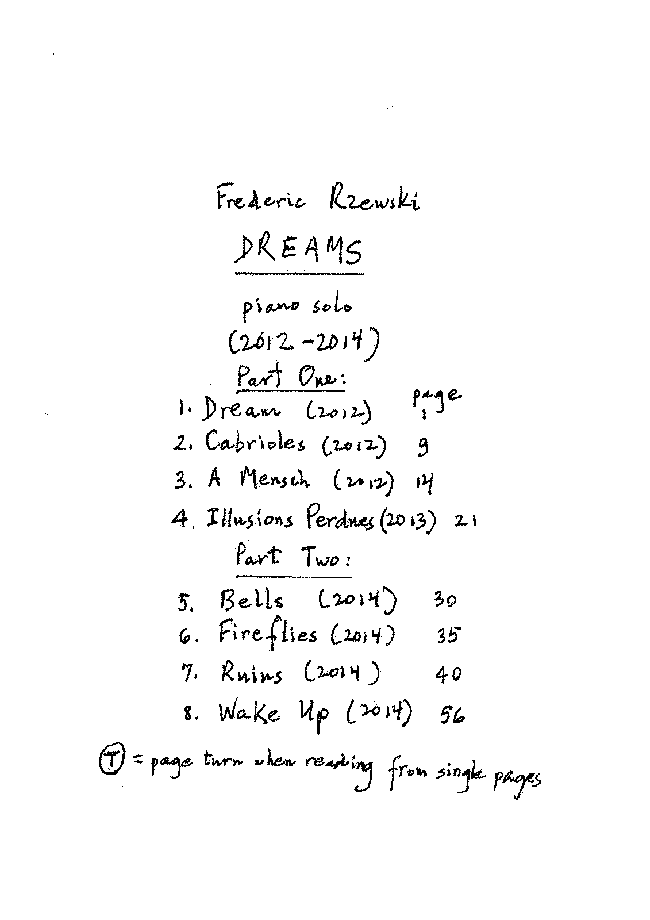
Though many have never heard of Frederic Rzewski, fast-rising pianist Igor Levit considers him to be nothing short of a contemporary Ludwig van Beethoven. Now 78, the American composer is best known for musical works that unabashedly tackle sociopolitical themes, like the plight of prisoners and struggles of the working class. So fervent is Levit’s belief in Rzewski that he boldly recorded the composer’s 36 Variations on The People United Will Never Be Defeated! (1975), alongside two of the greatest masterpieces in the keyboard form: Beethoven’s Diabelli Variations and J.S. Bach’s Goldberg Variations. (More on that recent release later.)
“I really consider him to be one of the greatest composers of our time,” said Levit, who at age 19 premiered a group of short works by Rzewski and has championed his music ever since. “It’s timeless music, and it’s music which manages to make the audience understand that they matter. It is about the people. It’s incredibly humane music. It’s very much up to date. He’s very political. He’s very aware of his social community. He’s not a horse with blinders.”

“I really consider him to be one of the greatest composers of our time,” says pianist Igor Levit of Frederic Rzewski.
Audiences can judge for themselves when Levit presents Part II of Rzewski’s Dreams (2012-14) in recital March 12 as part of the Symphony Center Presents Piano Series. The pianist premiered this half of the work, which was inspired by a 1990 Akira Kurosawa film, in Heidelberg in 2015. Part II contains four sections: “Bells,” “Fireflies,” “Ruins” and “Wake Up.” Levit describes Dreams as a long, narrative work that is both very difficult and incredibly beautiful. “Some people say, ‘There are parts that I love and parts that are annoying, and then the moods change,’” he said. “All I want to tell these people is, ‘Well, look around. Look at the people you meet. You go there yourselves. You change your moods everyday 50 times. It’s just normal. It’s just who we are.’ It’s a very deep piece. It’s truly complicated. It gets right to the point, and it’s very focused, and then it ends with this incredible glimpse of a Woody Guthrie a children’s song. So I think it’s a phenomenal cycle, but it’s not easy stuff at all.”
To complete his recital program, Levit has paired Dreams with Beethoven’s towering Thirty-Three Variations on a Waltz by Diabelli, Op. 120, written in 1819-1823. “It is the quintessential piece for everything that matters to me,” Levit said. “I just think it is the most exciting, complicated, weird, crazy, sane, insane, grotesque, heartfelt, deep, loving, hating and whatever piece. For me, it is the compendium of whatever we can possibly imagine human feelings can be like. And there isn’t a piece I’m more excited to play every time in any concert.”
The recital will not only mark Levit’s Chicago debut but also his first time in the city, and he plans to make the most of it. “Two days before the concert, March 10, will be my 30th birthday,” he said. “So I will celebrate my 30th birthday in Chicago, which I think is very, very exciting. I’m already in the middle of research of where I should go with my friends.”

The hand-written score for Rzewski’s Dreams; Igor Levit will perform Part II at his SCP Piano Series recital on March 12.
Levit is part of a wave of twenty-something soloists who are taking the piano world by storm, including Benjamin Grosvenor, Denis Kozhukin, Daniil Trifonov and Yuja Wang. Born in Russia, Levit moved with his family to Hanover, Germany, in 1995. From 1999 through 2000, he studied at the Salzburg Mozarteum and then completed his studies in Hanover, where he remained until moving to Berlin about a year ago. In 2012, he signed a recording contract with Sony Classical, which has resulted in three critically acclaimed solo discs, including the three sets of variations, which were released in October 2015.
Running through virtually the entirety of Levit’s short career has been his association with Rzewski. “Over the last years, this has become one of the most important and essential friendships and collaborations in my whole life,” he said. He discovered the composer when he was 17 or so, when he and friends were listening to a group of recordings to see if anything jumped out, and something did — Rzewski’s The People United. The budding pianist found himself so taken with the work that he sent Rzewski “quite a nonchalant” e-mail asking if the composer would write a piece for him. Two days later, Rzewski replied, saying that if the pianist could arrange underwriting for the project, then he’d be glad to do it. So Levit found a donor, and Rzewski composed seven short sonatas (Nos. 8-14) from his Nanosonatas cycle for Levit in 2006. “He has never met me before,” Levit said. “He has never seen me, but he wrote this piece for me, which I then I premiered in Hanover in front of, I don’t know, 20 people in the audience.”
From virtually the moment that Levit first heard The People United, he wanted to record it with the Diabelli and Goldberg variations. He believes that they are the most “incredible, magnificent and essential” sets of variations in the piano literature, and he has played all three many times. “I always thought of these three pieces together,” he said. “So it was clear to me that if I were to record any of those, I would record them together or not at all.” And that’s exactly what he did.
“Certainly he can muster all the athleticism, velocity and finesse of a competition winner ready to burst on to the international scene,” wrote David Fanning in his Gramophone magazine review of the recording. “But like the rarest of that breed — a Perahia, say — his playing already has a far-seeing quality that raises him to the status of the thinking virtuoso. … If a finer piano recording comes my way this year I shall be delighted, but frankly also astonished.”
Given such high praise, it was perhaps not surprising that the album won Gramophone’s 2016 Recording of the Year award — a highly sought-after honor. “I can tell you that was a big surprise — quite, quite a big surprise,” Levit said. “I didn’t expect that. I never expect such things.”
Kyle MacMillan, former classical music critic of the Denver Post, is a Chicago-based arts journalist.
TOP: Igor Levit | Photo: Felix Broede